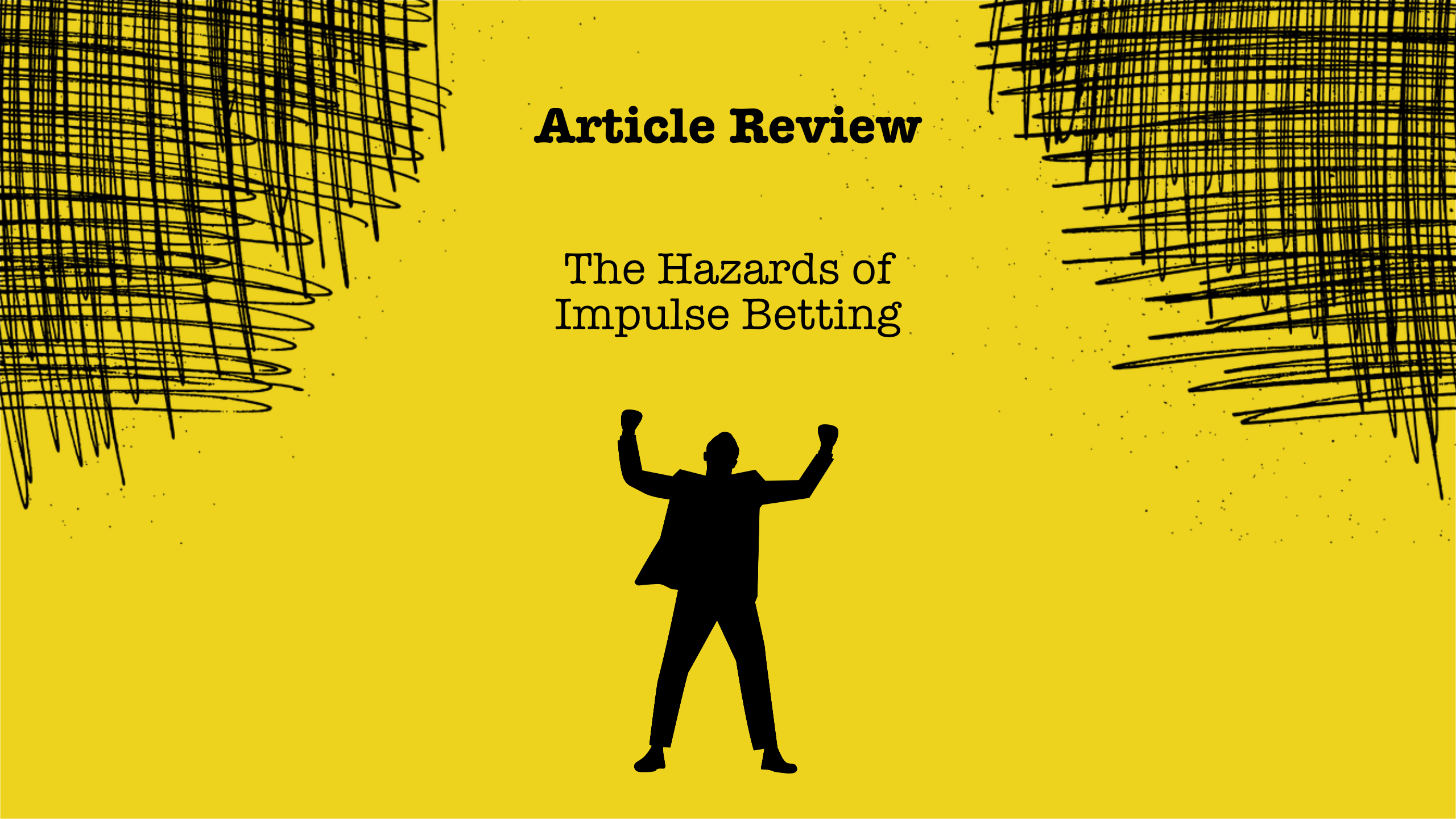Citations
"impaired control as a key feature in progression from initial gambling participation to problem gambling" (Blaszczynski and Nower 2002; Jacobs 1986; Nower and Blaszczynski 2006; Sharpe and Tarrier1993)
" ... 'more likely to make impulse bets during a sports match' when 1) good odds, 2) special match (e.g. grand final), 3) favourite team was playing, 4) easy access to sports betting facilities in a venue or online, 5) when watching the match with other adults betting on it."
"problem gamblers felt encouraged to place impulse bets by promotions that emphasised ease of placing the bet, were humorous and that promoted in-play bets."
"Female participation in sports betting appears to be increasing, perhaps driven by the greater gender neutrality of online gambling environments that women find less intimidating, less stigmatising, more anonymous and safer compared to land-based gambling venues" (Corney and Davis 2010; Griffiths 2001; Hare 2015).
"One study of female online gamblers found that they are more likely to be influenced by gambling advertisements than their male counterparts (McCormack et al. 2014), so they may be particularly susceptible to the proliferation of sports betting marketing in Australia"
"use of multiple accounts may facilitate a more rational and researched approach to betting that is focused on optimising potential financial returns."
External References
Binde, P. (2014). Gambling advertising: A critical research review. London, UK: Responsible Gambling Trust.
Gainsbury, S. M., Russell, A., & Blaszczynski, A. (2013). Are psychology university student gamblers representative of non-university students and general gamblers? A comparative analysis. Journal of Gambling Studies, 29(2), 311-323.
Hing, N., Cherney, L., Gainsbury, S., Lubman, D., Wood, R., & Blaszczynski, A. (2016a). Maintaining and losing control during Internet gambling: A qualitative study of gamblers' experiences. New Media & Society, 18(9), 1904-1922.
Hing, N., Russell, A. M. T., Vitartas, P., & Lamont, M. (2017a). Demographic, behavioural and normative risk factors for gambling problems amongst sports bettors. Journal of Gambling Studies, 33(4), 1371-1388.
Lopez-Gonzalez, H., & Griffiths, M. D. (2016). Understanding the convergence of online sports betting markets. International Review for the Sociology of Sport, 51(3-4), 365-381.
